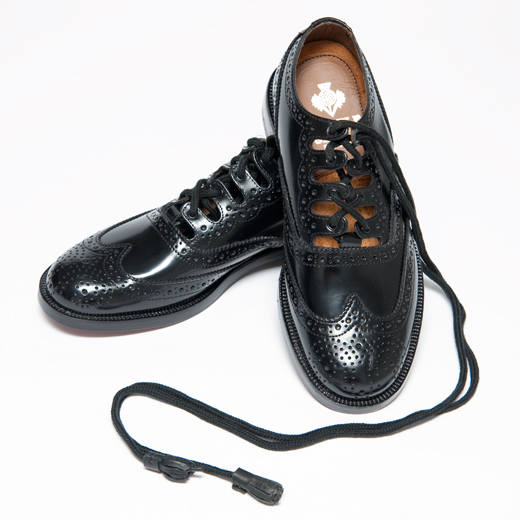| This Week’s Topic… | |||

Best viewed in
|
Ghillie Brogues
Brogues, often called wingtips in the USA, are low-heeled shoes that are made of heavy and untanned leather, said to have originated in Scotland. Brogue also refers to Oxford shoes that have fringe or wing tips. The term wingtip derives from the toe cap pattern, which forms a W and resembles the profile of a spread bird wing. The term brogue also survived in American English as the term "Brogans" in the Appalachian and Southern dialects. The word "brogue" is derived from the Scottish and Irish Gaelic word bròg meaning "shoe". The plural ("shoes") is "brògan". Ghillies, or Ghillie Brogues, are a type of shoe with laces along the instep and no tongue, especially those used for Scottish country dancing. Although now worn for dancing and social events, ghillies originated as a shoe that would dry quickly due to the lack of a tongue, and not get stuck in the mud because of their laces above the ankle. Because they are associated with a lad or servant, many Scotsmen will not wear ghillies preferring instead to wear a dress wingtip.
|
||
